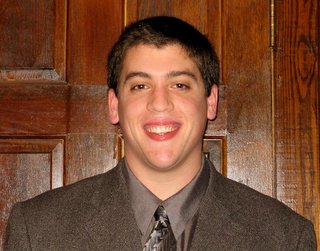Graduate Students
Kyle Jennings | Saiwing Yeung | Xiaowei Lu | Tammy English | Zach Rosner | Laura Naumann | Jenny Stellar | Matthew Feinberg | Olga Antonenko Young
Kyle Jennings
Kyle's and Professor Peng's research aims to locate the point of departure between East Asian and Western attribution processes. ÊThis involves determining whether people in either culture make different kinds of attributions because they hold different assumptions about causality, or because they make attributions via different processes. ÊPart of answering this question involves delving more deeply into the cognitive details of how people make attributions. ÊAdditionally, Kyle and Professor Peng are collaborating with Dr. Susannah Paletz to compare how conceptions of creativity vary between China and the United States, focusing particularly on the implications this can have for how creativity is recognized, rewarded, and developed.
Saiwing Yeung
I am interested in understanding how people solve everyday reasoning problems and the formal principles that underlie such abilities. In particular, I try to understand how and to what extent do prior knowledge and cultural differences help shape people's inference. My current projects focus on causal reasoning, trend prediction, and learning of distributional data.
Xiaowei Lu
Hi, I am Xiaowei Lu, second year graduate student. I got my Master's Degree in China and have come here to pursue my PhD degree in Social and Personality psychology area. Now, I mainly focus my research on two topics: 1) Comparisons between Chinese and American values: how Chinese cultural values and specific cultural factors influence Chinese couples' marital satisfaction, 2) Culture differences in attribution processes: Do people in China really have the concept of institution agency? Are there any cultural differences between Chinese and Americans in the attribution patterns?
Contact Xiaowei | Xiaowei's CV and webpage
Tammy English
Broadly, Tammy English is interested in how the social/cultural context interacts with one's self-concept and emotion processes. More specifically, her research examines: 1. The structure, consistency, and stability of the self-concept 2. Authenticity; the desire to be known and understood by others 3. Emotion and emotion regulation
Jennifer Stellar
 Jenny
Stellar is a graduate student in the Social/Personality area. She
graduated from the University of Pennsylvania with a B.A. in Psychology
and
Anthropology in 2006. She is interested in understanding how culture
can
shape our emotions and the physiological responses associated with
these
emotions, e specially in interpersonal interactions. She is also
investigating how culture can influence moral judgments. Specifically,
her
research focuses on how we make judgments about another individual's
morality and the influence of these judgments on future interactions,
other
domains less related to morality such as competence, and reputation.
Jenny
Stellar is a graduate student in the Social/Personality area. She
graduated from the University of Pennsylvania with a B.A. in Psychology
and
Anthropology in 2006. She is interested in understanding how culture
can
shape our emotions and the physiological responses associated with
these
emotions, e specially in interpersonal interactions. She is also
investigating how culture can influence moral judgments. Specifically,
her
research focuses on how we make judgments about another individual's
morality and the influence of these judgments on future interactions,
other
domains less related to morality such as competence, and reputation.
Matthew Feinberg

Matthew Feinberg is a graduate student in the Social/Personality area. He has two lines of research that are specifically cross cultural. First, he examines how cultural differences influence judgments of responsibility, looking at how different cultures emphasize the role of freewill when making decisions about responsibility and punishment. Second, he examines how globalization (especially the spread of western media & products) can alter cognition and attitudes in China.
Zachary Rosner

I am a second year Ph.D. student in Arthur Shimamura's cognitive neuroscience memory lab. My primary interest is the generation effect, the idea that active generation can benefit item recognition yet impair source memory. I also look at the effect that cultural differences in cognition have on this effect. Additionally, I study dual-process accounts of memory, the idea that retrieval and familiarity can independently contribute to recognition. I am looking at ways to use the knowledge for unitization, the idea that people with minimal hippocampal damage can still learn via relating unassociated items.
Laura Naumann

Laura Naumann is a fifth-year
graduate student in the
Social/Personality Psychology area at UC-Berkeley. She graduated from
The University of Texas at Austin with a B.A. in Psychology in Spring
2003.
Broadly, Laura is interested in how culture and context shape one's
personality and self-concept. Her research examines cultural
differences in self-perception among Asian Americans. More
specifically, she is examining how different processes such as cultural
values, standards, and motivations to improve may influence the Asian
self-concept. In the future, Laura hopes to examine how other factors
such as ethnic identity strength, biculturalism, and acculturation
shape self-perception processes.
Contact Laura | Laura's CV and webpage
Olga Antonenko Young
I have a strong interest and background in both philosophy and psychology. After completing my B.A. at Williams College and a graduate degree at the University of London, I worked for several years with a forensic population in order to examine the influence of emotions on our sense of morality. Currently my research centers on how our broader social environments including religion and culture influence both our emotional engagement with others and our sense of morality. In the context of culture, I am interested in how culturally unique spiritual beliefs shape experiences of compassion and forgiveness, conceptions of evil, and motivations for prosocial behavior.
